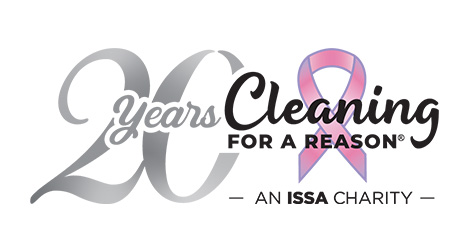Does your day usually start with emails by the hundreds, dozens of text messages, voicemails, and maybe even an occasional fax?
If you are in the professional cleaning industry, you know the chaos described here is just a typical morning for most people managing a cleaning staff servicing multiple locations. Technology has taken over our daily lives; so much so that many people in the industry have lost sight of one of the most important aspects of their daily operations—quality control.
Maintaining a high standard of service for the buildings in your care is of the utmost importance, whether you operate as an in-house facilities manager in charge of maintaining multiple buildings, a small mom-and-pop janitorial company, or an international commercial cleaning contractor with multi-facility clients. Quality control should be top of mind for everyone in the commercial cleaning industry.
Here are some universal tips and guidelines for maintaining cleaning and performance standards across multiple sites.
Establishing Processes
Regardless of the type of facility or who maintains it, there needs to be a process in place to consistently manage the level of cleanliness. The key term here is, “consistently.” The approved process needs to happen every time a team cleans.
Sadly, our industry is plagued with services that too often do not have quality controls in place. This is obviously bad for clients and the people who work for them, but it is also bad for the cleaning industry as a whole, and specifically for the companies that fail to implement standard operating procedures in regards to service standards.
If you are a commercial cleaning contractor, consistency builds your reputation for being a trusted, reliable service provider. For an in-house team, consistency helps ensure that facilities are well maintained and creates a level of trust among custodians, management, and other decision-makers within an organization.
Proper Quality Control
A proper quality control program should consist of a variety of processes across many avenues. Consider the following for your operation.
Implement a Training Program
The first step in quality control is having a proper training program in place. Training is extremely important and is probably best tackled as a topic all on its own. For the purposes of this article, let us assume your cleaning staff has been properly trained. As we know, they are the front line of the team. It is their job to make sure the work is done properly and in the way you, as the manager, want them to complete it. Clearly, nobody is perfect, and even the best cleaner will have an off day, perhaps take a shortcut, or simply make a mistake or not follow the system as they should.
Empower Leaders to Oversee the Team
Establishing a good relationship and communicating with the appropriate people in the facility is key to executing a quality control system.
One of the ways to limit blunders is to empower an on-site supervisor. A good on-site supervisor will be a key person on the cleaning team and will conduct random spot-checks to make certain the job is completed as specified by the service agreement and the specifications of the job.
One of the primary roles of the on-site supervisor is to maintain consistency in the daily procedures. If the supervisor finds deficiencies, he/she can correct them prior to the arrival of employees or visitors to the facility. The use of a detailed checklist (paper or electronic) can facilitate the process. Ensure the supervisor reviews the checklist on an ongoing basis, especially if facilities undergo renovation or if there is a shift in an agreement or staffing on your cleaning team. Checklists are time-tested to work, but only if you ensure that they meet the needs of the given facilities.
Another person that may be key to ensuring the execution of quality control systems is the operations manager. An operations manager may make quality control phone calls to the client, provide surveys regarding the level of service, and periodically perform routine and on-site inspections of the facilities.
Consider Software Solutions
With today’s technological advancements, there are many software options that are available from a variety of sources. If you have attended an industry trade show recently, such as ISSA/INTERCLEAN®North America, you know the number of software companies servicing our industry seems to increase year after year.
Larger cleaning companies may choose to have proprietary software written for their quality control processes, but smaller companies and in-house teams can utilize software provided by a third-party company for a monthly subscription. While software is a great way to assist in quality control, software alone will not achieve the desired end result. There still needs to be qualified and experienced people driving a systematic approach to quality control to assure the desired level of cleanliness is consistently met.
Stick to Old-School Methods
Although technology is commonly used for inspections and quality control in many industries, it is not an absolute necessity. If you manage a smaller in-house team or own a one- or two-person janitorial company, simple checklists and paper surveys for inspections and audits still work. If you simply don’t have the budget for the high-tech gadgets and software, the old-fashioned pen and paper will do the trick.
Dealing with Discretion
One point worth noting: Having two or more people conducting quality control audits could easily produce very different results. There is, and always will be, some level of discretion by the person conducting a quality control audit, and that discretion will lead to a different outcome than that of another inspector. Just as different inspectors will look for different results, clients’ expectations may vary from location to location. As a result, it is imperative for commercial cleaning companies to communicate effectively and really understand the nuances of each client; in-house facilities managers must understand who they report to and what they expect across the board.
It’s All About Adapting
Quality control is about following processes and understanding how to tailor and adapt those processes to any given situation. As we all know, every cleaning job is different. But, we can rest assured knowing that our team is doing the job the right way if there is an established system for quality control.




